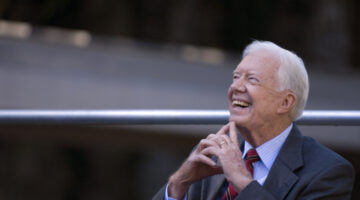University Hospitals has named Dr. Alan M. Hirsh as the first chief medical officer for its emerging UH Ahuja Medical Center.
Hirsh will lead clinical quality at the hospital and medical office complex set to open in 2011, carrying out UH’s vision of providing Cleveland’s eastern and southeastern suburbs with high-quality, advanced medical, surgical and emergency services.
“Alan brings a wealth of experience as a health care executive and accomplished physician to the helm of the UH Ahuja Medical Center, said Dr. Achilles Demetriou, chief operating officer of University Hospitals, in a written statement.

Using Informed Awareness to Transform Care Coordination and Improve the Clinical and Patient Experience
This eBook, in collaboration with Care Logistics, details how hospitals and health systems can facilitate more effective decision-making by operationalizing elevated awareness.
Hirsh joined UH in 1998 as site medical director for the Internal Medicine Group practice of UH Medical Practices. He has served as the medical director for corporate compliance with the medical practices group, acting as a liaison for physicians there and educating staff on compliance issues.
He also is a senior clinical instructor at Case Western Reserve University School of Medicine.
Prior to joining UH, Hirsh was in a private practice affiliated with Mt. Sinai Medical Center in Cleveland, which no longer exists. He has also served as vice president of the medical staff at Stonewall Jackson Memorial Hospital in Weston, W.V.
He completed a residency in internal medicine at Rush Presbyterian St. Luke’s Medical Center in Chicago and received his medical degree from the University of Illinois College of Medicine.

A Deep-dive Into Specialty Pharma
A specialty drug is a class of prescription medications used to treat complex, chronic or rare medical conditions. Although this classification was originally intended to define the treatment of rare, also termed “orphan” diseases, affecting fewer than 200,000 people in the US, more recently, specialty drugs have emerged as the cornerstone of treatment for chronic and complex diseases such as cancer, autoimmune conditions, diabetes, hepatitis C, and HIV/AIDS.
Hirsh joins James Benedict Jr., who was appointed president of UH Ahuja Medical Center in July 2009. “Dr. Hirsh is an outstanding addition to our leadership team at Ahuja Medical Center,” Benedict said in the hospital’s statement. “I look forward to opening the medical center with someone as qualified, knowledgeable and patient-focused as Dr. Hirsh.”
Part of UH’s five-year, $1.2 billion strategic plan called Vision 2010, the Ahuja Medical Center was initially slated to open in 2010. The first phase of the 53-acre health care campus includes a 144-bed hospital and a 60,000-square-foot medical office building. The complex could be expanded to accommodate 600 beds over three phases.
In December, University Hospitals said it would streamline its clinical and nonclinical operations, and bring in some new faces to lead continued growth at the regional health system during uncertain times in its industry. University Hospitals has undergone a financial turnaround since 2003 when Thomas F. Zenty III became its chief executive.












